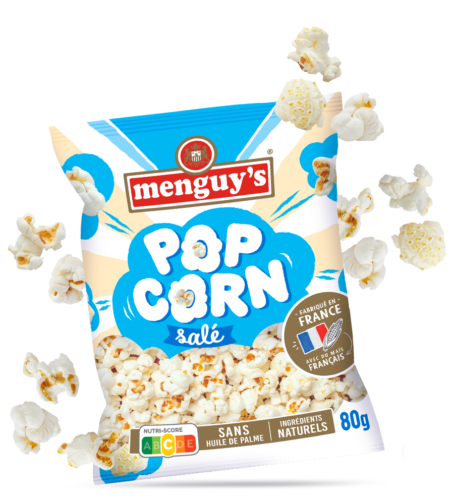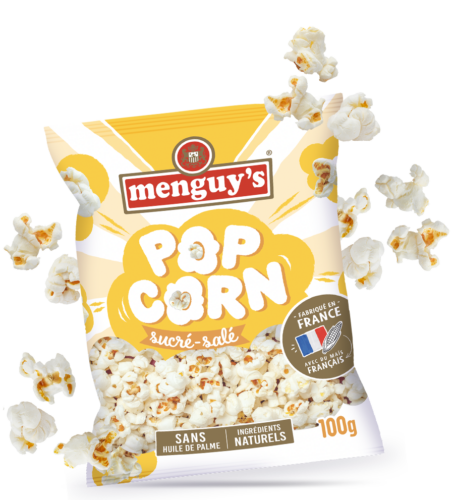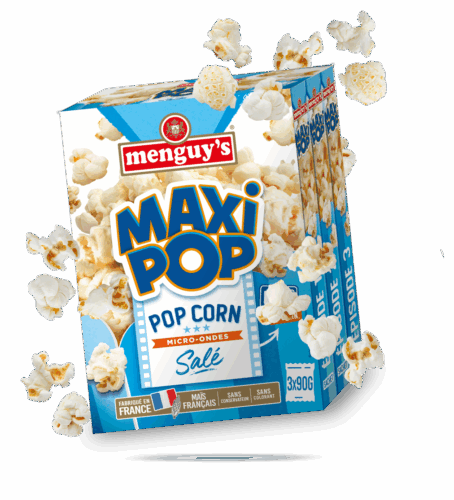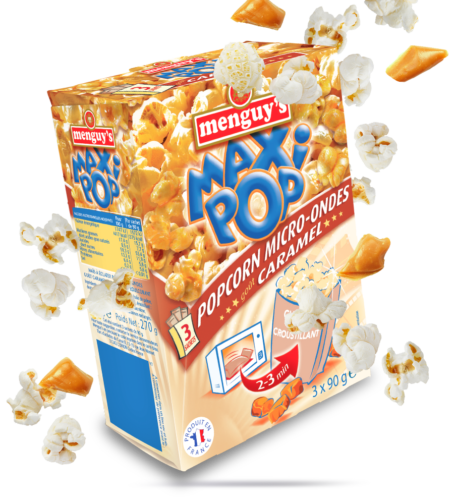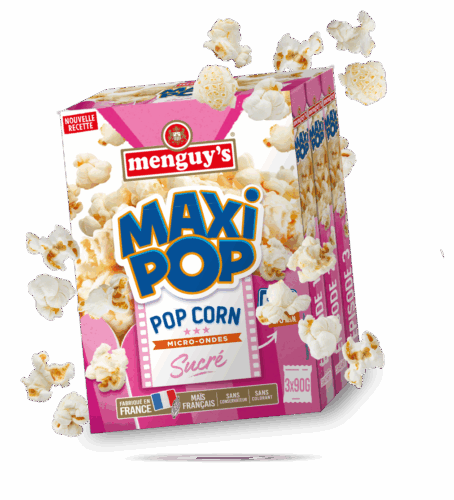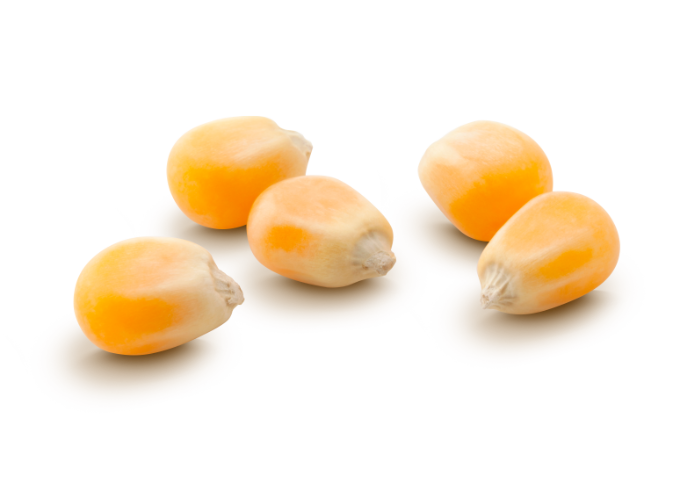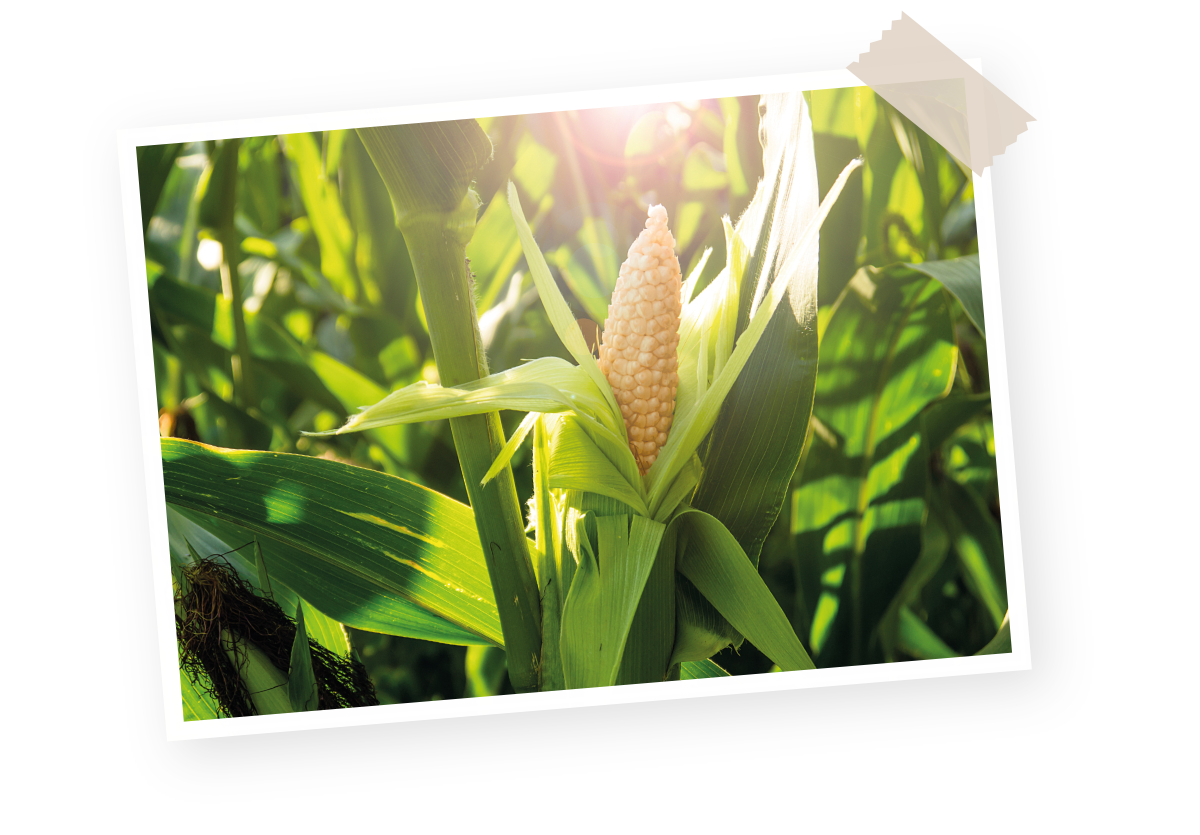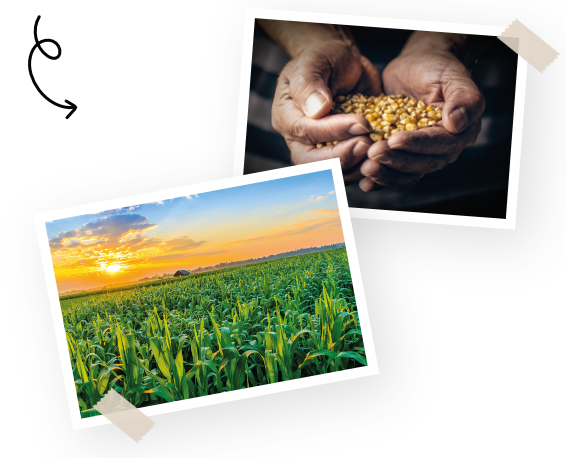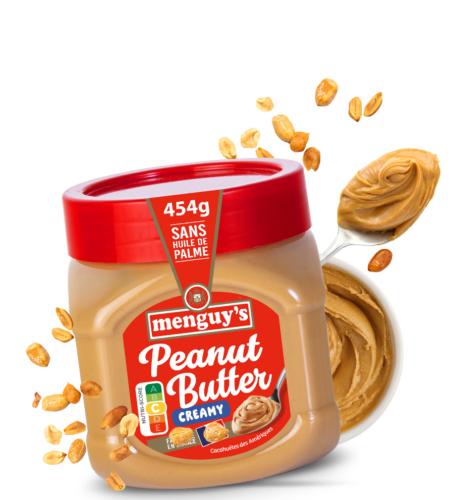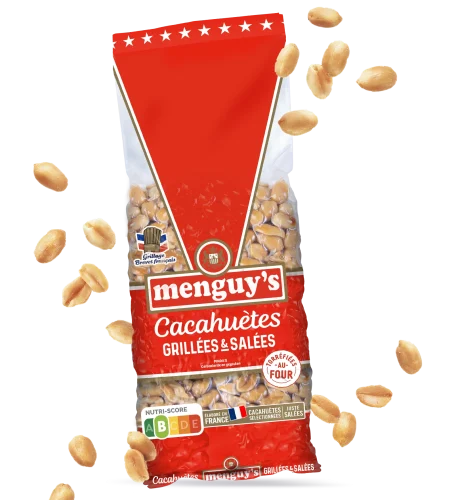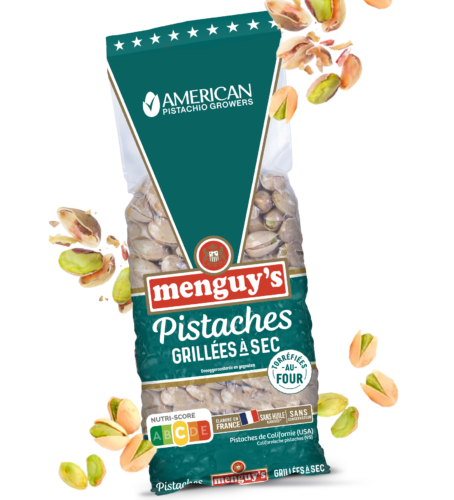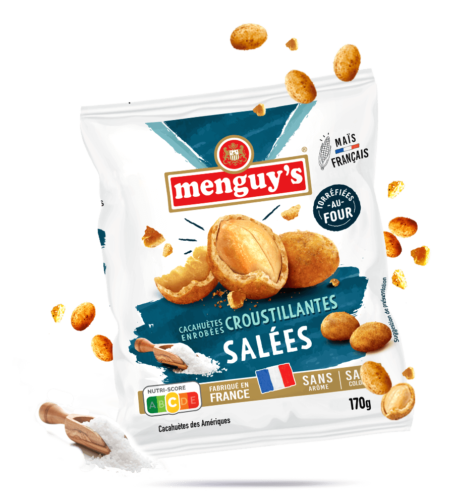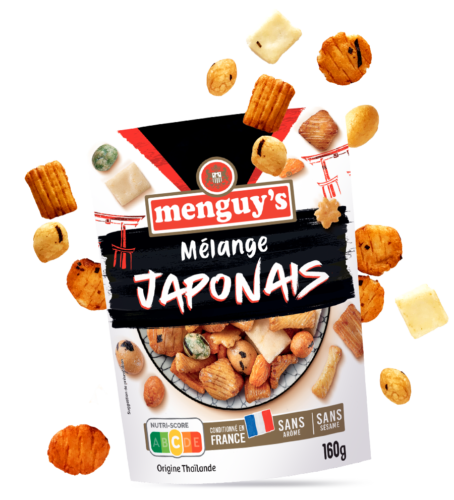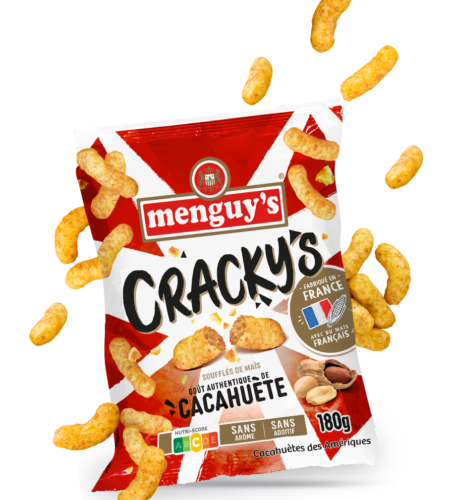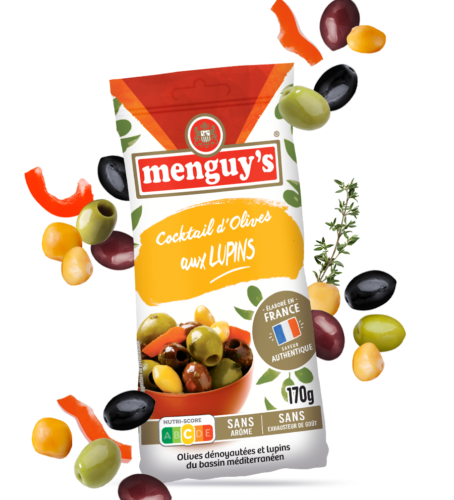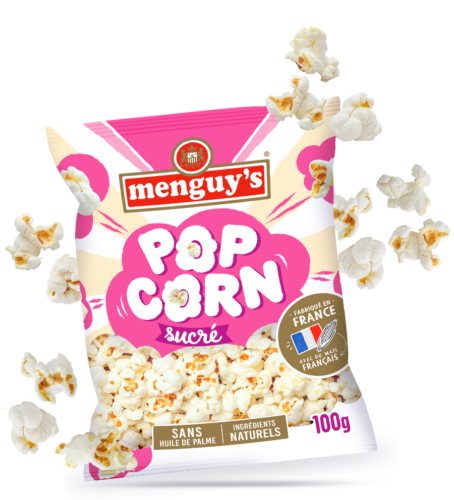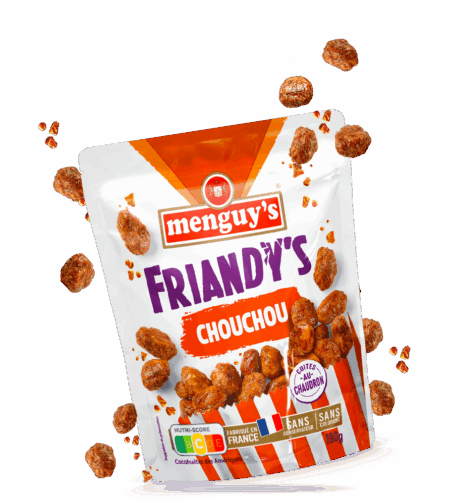Pop-Corns,
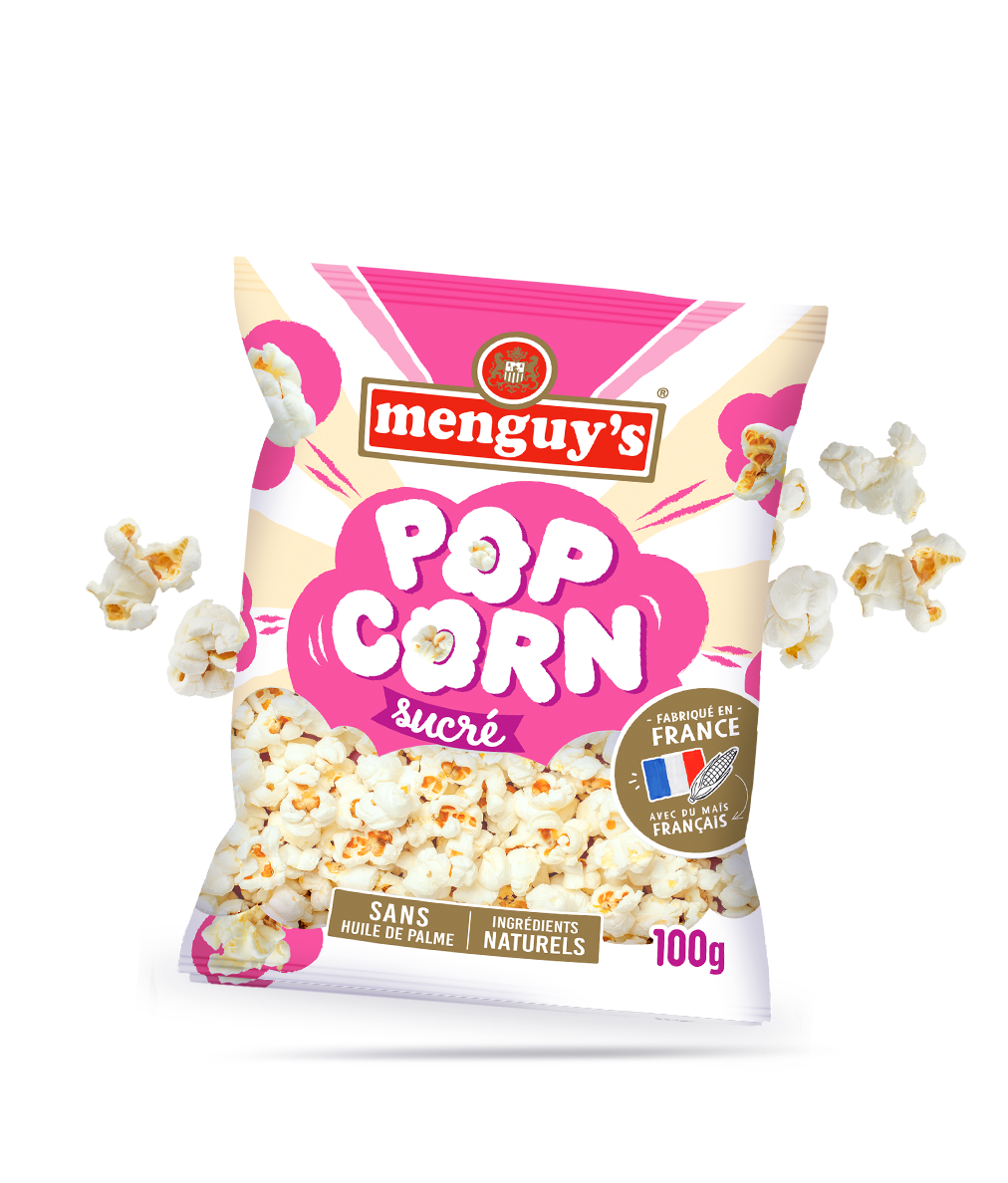

Sweet popcorn
Open & enjoy !
An impromptu movie night? A last minute food craving? Don’t panic, Menguy’s has the solution: its deliciously crunchy and sweet popcorn!
Open the bag and all you have to do is enjoy it
100% French corn and guaranteed GMO-free. 100% natural ingredients. Made in France.
Origin : France
INGREDIENTS
Sugar 42%, GMO-free corn 39%, sunflower oil.


You will also like

Nutritional
information
| for 100g | for 1 portion | |
|---|---|---|---|
|
| 25g | |
| Energy (kJ) | 2017 | 503 | |
| Energy (kcal) | 480 | 120 | |
| Fat (g) | 19 | 4.7 | |
| including saturated fatty acids (g) | 1.7 | 0.4 | |
| Carbohydrates(g) | 72 | 18 | |
| including sugars (g) | 38 | 9.6 | |
| Dietary fibre (g) | 2.7 | 0.7 | |
| Protein (g) | 4.0 | 1.0 | |
| Salt (g) | 0 | 0 | |
* Recommended daily amount for a typical adult (8,400 kJ / 2,000 kcal).
